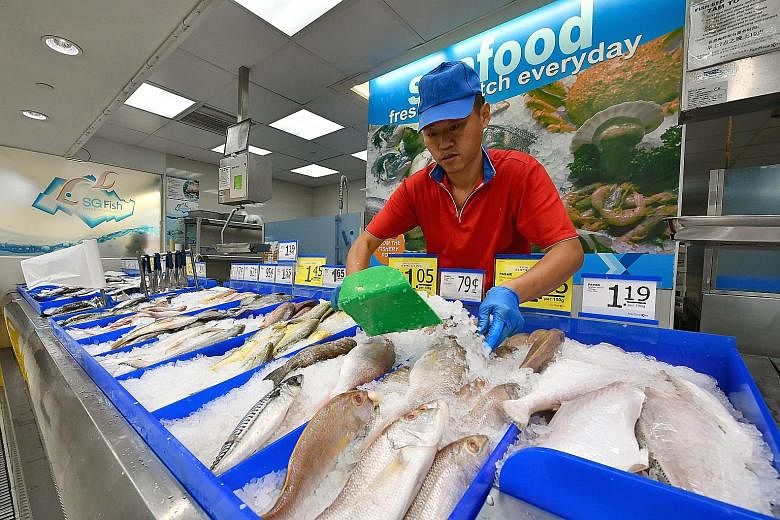Inflation spiked last month to reach its highest level in almost three years.
Economists said this was due more to the timing of certain subsidies than stronger economic growth, though they also noted that cost pressures in the economy could continue picking up over the rest of the year.
The consumer price index - the main measure of inflation - rose 1.4 per cent last month from a year ago, the fastest rate of growth since July 2014. This was close to economists' expectations of 1.3 per cent and followed a 0.4 per cent uptick in April.
Last month's sharp increase was due largely to base effects associated with the timing of rebates for service and conservancy charges disbursed to Housing Board residents.
The rebates, distributed in May last year, were given out in April this year. This means housing maintenance and repair costs were higher last month compared with the same month a year earlier.
Other costs also rose. Electricity and gas costs increased by a faster 19.1 per cent last month compared with the 18.7 per cent increase in April.
This was due to a larger hike in gas tariffs on the back of a recovery in global oil prices over the past several months, according to a joint statement from the Trade and Industry Ministry and the Monetary Authority of Singapore.
Overall food inflation also picked up, rising to 1.5 per cent last month from 1.3 per cent in April, driven by a larger increase in the prices of non-cooked food items. The cost of prepared meals rose at a similar pace in both months.
These increases were offset by a slowdown in services inflation, which fell to 1.4 per cent last month from 1.7 per cent in April, mainly reflecting a decline in holiday expenses and airfares.
ANZ economists Ng Weiwen and Sanjay Mathur said this indicates consumer demand has yet to pick up significantly despite stronger economic growth this year.
"Lower services inflation is, in our view, a reaffirmation of the absence of demand-pull pressures," they noted, adding: "Inflation is likely to rise in the coming months to reflect a combination of unfavourable base effects and upward adjustments in administered prices as opposed to stronger demand conditions in the economy."
Core inflation - which strips out accommodation and private road transport costs to better gauge everyday expenses - was 1.6 per cent last month, down slightly from April's 1.7 per cent.
Core inflation remains fairly high, noted DBS senior economist Irvin Seah. "Cost pressures are indeed building up and this could accelerate when the water price hike kicks in in July.
"Although the weighting of water prices in the overall consumer price index basket is not significant, the second-order impact of the price hike - particularly the pricing behaviour from retailers - could be a risk factor."
Mr Seah expects inflation to stay above the 1 per cent level for the rest of the year and average 1.2 per cent overall.


